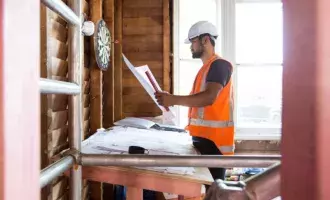The introduction of digital technologies in the planning sector has developed incrementally since 2000, when most local authorities were primarily just meeting the minimal regulatory requirements for online publication. Early digital initiatives enabled stakeholders to read and engage with planning in a more consultative way. However, the speed at which technology has been able to be adopted in the sector has been slower compared to wider society.
On 13 January 2025, the Department for Science, Innovation and Technology published a 50-point AI Opportunities Action Plan aimed at “ramping up AI adoption across the UK” with the Prime Minister stating that AI was “the defining opportunity of our generation” and cited planning as one area of innovation being driven by AI. The strategic focus on AI presents significant opportunities to unlock hidden data and accelerate laborious processes to the benefit of the whole industry.
Legislative catalysts and digital transformation
The Levelling Up and Regeneration Act, which was effective from 26 October 2023, facilitates changes and improvements to the planning system by introducing measures to advance the use of high-quality data and modern, digital services across the planning process. This includes setting standards for planning data and software requirements, and laying the groundwork for a digitally advanced planning system that could catalyse industry success. The use of effective digital solutions can streamline processes, drive collaboration and innovation and facilitate regulatory compliance - positioning the planning sector at the forefront of sustainable development and growth.
Building skills and expanding capabilities
The Ministry of Housing, Communities & Local Government (MHCLG) published the results of its first annual survey, the Local Authority Planning Capacity and Skills Survey on 9 January 2025. The survey highlighted a significant digital skills gap, both in terms of digital planning and broader digital skills, including the use of technology, software and data within their department. Despite recognising digital planning as the largest skills gap (51%) across planning departments, only 22% of local planning authorities (LPAs) considered this to be a priority for the next 12 months. However, the national focus to drive productivity through the use of AI suggests a rapid elevation in its importance, potentially enhancing plan making and community engagement.
There have been significant efforts from the open digital planning community, council officers, digital specialists, and technical experts who have been working hard to shape the next generation of local government planning services and improve planning processes. Innovations such as the PlanX content management system, the BOPS (Back Office Planning System), and the Digital Planning Register are providing user-friendly solutions that enhance local authority service delivery. The government estimated that digital processes will make planning decisions at least 20% faster. The ongoing refinement and scaling of these tools aim to disrupt the current market offer, optimising available technology in alignment with daily planning operations.
Utilising the right tools and community engagement
The planning sector is developing tools and guidance to ensure local plans are data-driven, transparent and user-friendly, thereby speeding up the adoption process. Enhanced community consultation tools are also being developed to improve engagement with local communities throughout the plan process - empowering residents, building trust and inclusivity. MHCLG are actively supporting the delivery of local plans within 30 months by creating tools for plan visualisation, data standardisation and AI implementation.
Emerging technologies and market opportunities
Virtual reality (VR) is making significant strides in the planning sector by enhancing project visualisation, design, and execution through 3D models. This immersive technology enables stakeholders to envision final projects in their true spatial contexts before construction.
Additionally, a wide range of UK digital planning service providers are offering comprehensive solutions across multiple areas, including community engagement, visualisation, 3D modelling, GIS and mapping, environmental and sustainability services, urban design, AI and much more. These offerings highlight the vast potential of digital tools to modernise and improve planning practices. The launch of the UK’s first Digital Planning Directory on the 22 January is set to facilitate access to these innovative state-of-the-art digital planning services even more.
Looking ahead
It’s an exciting time in the planning sector, with technological advancements offering substantial benefits to both the industry and the communities it serves. Through collaborative efforts between technology providers and planning professionals, the sector is poised for significant transformation and efficiency gains.
Ready to explore new technologies? Get in touch to find out how the combination of technology and planning can deliver better outcomes for your community and council:

Jonathan Pennick
Business Development Director – Planning and Regeneration
Jonathan Pennick is a Business Development Director for Capita Public Services. Jonathan is a chartered Member of the Royal Town Planning Institute, with over 20 years’ experience of delivering planning services to local government clients.







